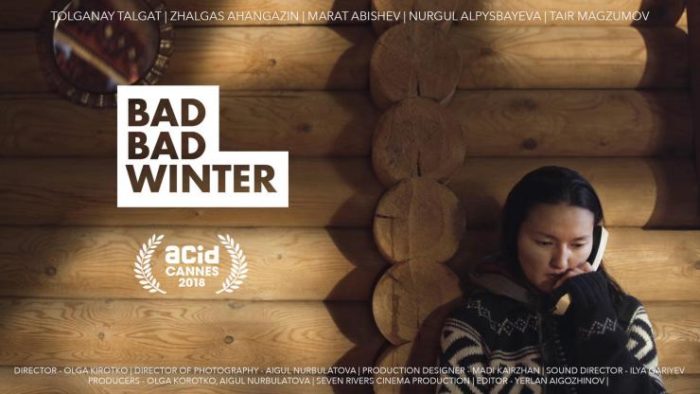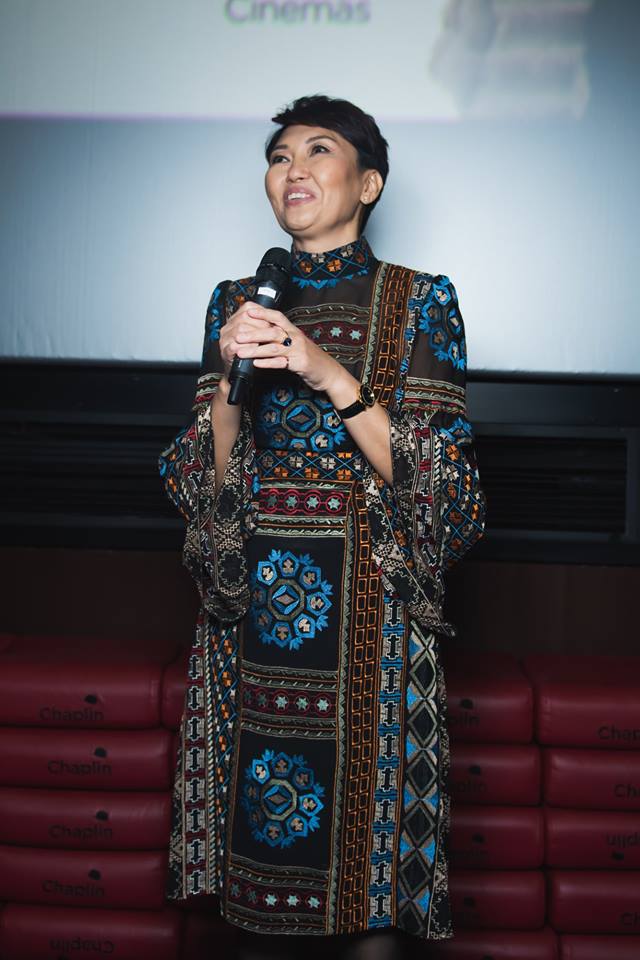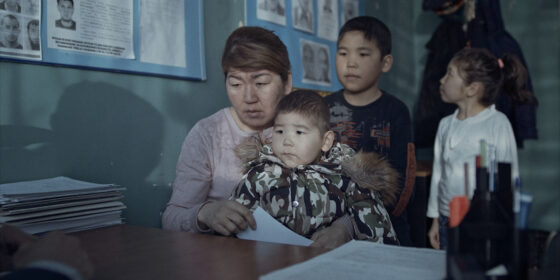NUR-SULTAN — In the last years, the Kazakh cinema industry has thrived with a new generation of directors that have attracted international attention for their work. From Olga Korotko to Marina Kunarova, women are at the forefront of this brave new era.

“Bad Bad Winter” by Kazakh director Olga Korotko was featured at the annual Cannes Film Festival Association for Independent Cinema and its Distribution (ACID) program in 2018.
In 2015 The Guardian was referring to Zhanna Issabayeva as “one of the few women directing… in Kazakhstan today”. At the time, The Guardian published an article featuring the “most intriguing figures working in Kazakh cinema today” selected by The Calvert Journal (‘the world’s leading publication for culture, innovation, photography and travel in the New East’ – The Calvert Journal website). As a female filmmaker, Issabayeva is famous for the empathy displayed in her movies. From the ‘dramatic comedy of a pathological liar” (IMDb) in “Karoy” (2007), that debuted at the Venice Film Festival, to the story of female orphans abandoned by society in “Nagima” (2013), which was displayed at the Busan International Film Festival.
Korotko has directed two movies that have been featured at international festivals: “Bad Bad Winter” (2018), presented for the first time at ACID (Association du Cinema Independant pour sa Diffusion), and “A Pair of Leather Clogs” (2021-in production) promoted by the Berlinale Talents Project and the Asian Cinema Fund. Although through different styles (one a drama, the other closer to comedy), the two movies explore post-soviet Kazakhstan, from the crisis caused by the failure of communism to the difficulties of creating a ‘new’ country.

Zhanna Issabayeva
Marina Kunarova mixed the historical account of the Great Famine that Kazakh suffered at the beginning of the 20th century with a fictional story to realize “The Crying Steppe” (2020). The movie was listed in the 2021 Oscar nominations for International Feature Film. This achievement comes despite the limited funds available to make the movie and the lack of international attention that other international movies have received, as explained by Variety in its January 2021 article “Foreign-Language Films with Small Budgets Struggle to Stand Out.”
Led by its female leaders, the Kazakh movie industry is focusing on modern and international topics.
Katya Suvorova with her “Let There Be a Girl” (2021-22) film, tackled the topic of female empowerment in a country where the tradition is often to give male names to daughters in order to fulfill the parents’ desire to have a son. This movie was featured in The Calvert Journal and has won the German Composition Funding Award at DOK.fest Munich 2021.
Sharipa Urazbayeva’s “Mariam” (2019) focuses on the strength of a woman who, abandoned by her husband, needs to support her family, promoting the idea of female empowerment in Kazakhstan. This movie was presented at TIFF (Toronto International Film Festival).
Finally, Banu Ramazanova’s “Over Barriers” (2021) which celebrates the victory of the absinthe horse from Kazakhstan that won the individual dressage competition during the Rome Olympics in 1960. The movie honors the magnificence of Kazakh horsemanship. It was featured in various international film festivals such as the Oz Indie Film Festival and the Cyprus International Film Festival (CYFF).

A scene from Sharipa Urazbayeva’s film “Mariam.” According to critic James Cansdale-Cook, this is one of “Mariam”’s greatest strengths, “an unflinching ability to empathise with its leading lady on a multitude of levels, and it makes her rediscovery of her humanity all the more endearing – and precisely why the film’s albeit predictable third act is all the more harrowing.”

